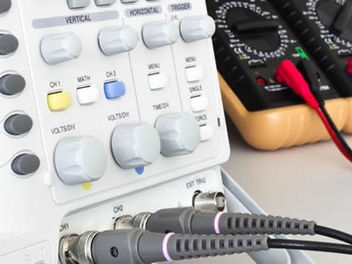What Does a Landlord Electrical Safety Inspection Involve and Why Do Landlords Need One
- Guy hudson
- Jul 20, 2023
- 4 min read
As a responsible landlord, ensuring the safety and well-being of your tenants should be a top priority. One crucial aspect of this responsibility is conducting regular electrical safety inspections on your rental properties. A landlord's electrical safety inspection involves a thorough examination of the electrical installations within the property to identify potential hazards and ensure compliance with safety regulations.
During the inspection, a qualified electrician will assess various aspects of the electrical system, including the wiring, sockets, switches, consumer units, and any fixed electrical appliances. The main objectives of the inspection are to ensure that the electrical installations are safe for use, reduce the risk of electrical accidents and hazards, and comply with legal requirements.

Understanding the Scope of a Landlord's Electrical Safety Inspection
A landlord's electrical safety inspection is a comprehensive assessment of the electrical systems and installations in a rental property. The inspection is conducted by a qualified electrician who will thoroughly examine various components, including:
Consumer Units (Fuse boxes): The electrician will inspect the consumer unit to ensure it is up-to-date, safe, and compliant with the latest wiring regulations.
Wiring and Circuits: All wiring and circuits throughout the property will be checked for signs of wear, damage, or improper installation. This helps identify potential fire hazards and electrical faults.
Sockets and Switches: The condition of all electrical sockets and switches will be assessed to ensure they are secure and functioning correctly.
Fixed Electrical Appliances: Any fixed electrical appliances, such as built-in ovens or electric showers, will be checked for safety and proper operation.
Earthing and Bonding: The electrician will verify that the property's earthing and bonding are adequate to protect against electric shocks.
Light Fixtures: All light fixtures, including fittings and bulbs, will be inspected to ensure they are safe and in working condition.
7 Advantages of Performing Regular Electrical Safety Inspections as a Landlord
Tenant safety and well-being: The primary advantage of conducting regular electrical safety inspections is to protect your tenants from electrical hazards. Identifying and rectifying potential issues early on can prevent accidents and ensure the well-being of those living on your property.
Compliance with legal requirements: As a landlord, you are legally obligated to ensure that the electrical installations in your property are safe and meet the necessary wiring regulations. Regular inspections help you stay compliant with these legal requirements.
Reduction of electrical accidents and hazards: By proactively inspecting and maintaining your electrical installations, you significantly reduce the risk of electrical accidents, such as electric shocks or fires.
Protection of property and assets: A comprehensive electrical safety inspection helps safeguard your property and valuable assets from potential electrical damages that may arise due to faulty wiring or equipment.
Mitigation of liability risks: Conducting regular inspections demonstrates your commitment to tenant safety and can help mitigate liability risks in case of electrical incidents.
Increased tenant satisfaction and trust: Providing a safe living environment enhances tenant satisfaction and trust in you as a responsible landlord, potentially leading to longer and more positive tenancies.
Maintenance of a positive landlord reputation: Investing in electrical safety inspections showcases your dedication to responsible property management, enhancing your reputation as a reliable landlord in the rented sector.
The Legal Requirements for Landlord Electrical Safety Inspections in the UK
UK landlords are legally obligated to conduct electrical safety inspections in their rental properties. As of June 1, 2020, new legislation requires landlords in the private rented sector to:
Have Electrical Installations Checked: All electrical installations in the property must be inspected and tested by a qualified electrician.
Obtain an Electrical Installation Condition Report (EICR): After the inspection, landlords must obtain an EICR, also known as an installation condition report. This report details the condition of the electrical installations and any necessary remedial work.
Provide a copy of the EICR to tenants: Landlords are required to provide a copy of the EICR to their tenants within 28 days of the inspection.
Perform Remedial Work: If the EICR highlights any issues or remedial work that needs to be carried out, landlords must address these problems promptly.
6 Risks of Non-Compliance with Electrical Safety Inspection Requirements for UK Landlords
While the advantages of conducting electrical safety inspections are clear, non-compliance with these requirements poses several significant risks for UK landlords:
Legal penalties and fines: Failure to comply with electrical safety inspection regulations can result in legal penalties and fines, impacting your finances and reputation.
Risk of tenant injury or harm: Neglecting electrical safety inspections may lead to potential harm or injury to your tenants, resulting in liability claims and legal challenges.
Damage to property or electrical systems: Ignoring electrical safety can lead to damage to your property and electrical systems, resulting in costly repairs and potential disruption for your tenants.
Compromised reputation as a landlord: Non-compliance with safety regulations can tarnish your reputation as a responsible and trustworthy landlord, making it challenging to attract and retain tenants.
Potential difficulties with insurance claims: In case of electrical incidents, non-compliance may lead to difficulties with insurance claims, potentially leaving you financially burdened.
Increased liability in case of accidents or emergencies: If an electrical incident occurs on your property, non-compliance may increase your liability, exposing you to legal action and financial consequences.
Conclusion
As a landlord, prioritizing the safety of your tenants and property is paramount. Regular electrical safety inspections not only ensure compliance with legal requirements but also foster tenant satisfaction and confidence in your property management.
At Global Compliance UK, we have over 25 years of experience in the Electrical Testing & Inspection Industry. Covering the entire South of England & South Wales, as well as supporting clients with Nationwide requirements, we offer a range of electrical testing and safety services.
Don't compromise on tenant safety or expose yourself to unnecessary liabilities. Contact us for professional electrical safety inspections and receive an electrical safety certificate to ensure your property meets the necessary safety standards. Invest in the well-being of your tenants and secure your property with the expertise of Global Compliance UK.
Ensure a safe and compliant rental property with Global Compliance UK's trusted electrical inspection services. Visit our website at global-compliance.co.uk to learn more about our services and how we can assist you.























Comments